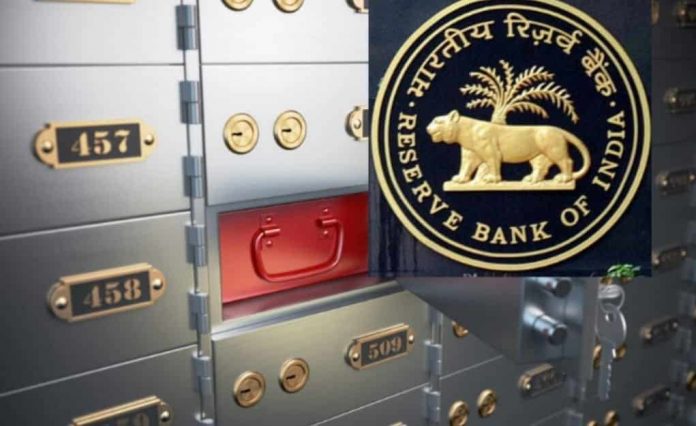Bank Locker Rules: RBI has made many changes in many rules related to locker in banks. According to the latest guidelines issued by the Reserve Bank of India, now the liability of banks has been limited regarding the locker. Also, the bank will not take any kind of security guarantee in case of natural calamity.
On the other hand, even if someone is not a customer of the bank, one can apply for a locker. RBI has tried to make banks more transparent and responsible in locker allocation under the new rules.
The Reserve Bank has also mentioned in detail the compensation policy and liability for banks in the revised instructions.
RBI’s new rules related to bank lockers will be applicable from January 1, 2022. If you also use a bank locker, then it is important for you to understand what precautions have to be taken in its use.
The Reserve Bank has said that the bank will not be responsible for any loss in the event of natural calamity or ‘Act of God’ i.e. earthquake, flood, lightning or storm. However, banks will have to make proper arrangements to protect their premises from such calamities. If negligence is found, the banks will have to pay the damages.
All security arrangements will have to be made
But banks will have to implement such a policy approved by their board in which their responsibility can be fixed for the goods kept in the locker due to negligence. The bank will have to take adequate steps to protect the strong room/vault. The Bank shall be solely responsible for the safety of the premises of the Bank in which the Safe Deposit Lockers are located. It will be necessary to keep the CCTV footage of entry and exit for at least 180 days.
How much amount will the bank refund
It has been clearly stated in the instructions that in the event of fire, theft, dacoity or burglary, the entire responsibility of the goods of the customers will be on the banks. But in such cases the liability of the bank will be up to one hundred times the annual rent of the locker. For example, if the annual rental charge of the locker in the bank is Rs 1000, then in case of loss due to fire, theft, dacoity etc., the bank will refund you a maximum of Rs 1 lakh. Even if a bank employee commits a fraud, the liability of the bank will be 100 times only.
Transparency has to be maintained in relation to lockers
The RBI directive states that banks will have to provide receipts for all applications for locker allotment. Banks will be required to send SMS and email (e-mail) of locker operations to the customers. Locker applications will be taken from all the customers and they will be issued a wait list number. Bank’s branch wise locker allotment information and waiting list will be linked to the core banking system.
Illegal goods will be banned
Banks will have to include a provision in the locker agreement under which the person taking the locker on hire will not be able to keep any illegal or dangerous goods in it. The Bank shall have the right to take action on suspicion of illegal or dangerous (explosive, inflammable) articles.
People will get better facilities
According to the new rule, after KYC, non-banking customers will also be able to get the facility of bank locker, but it will depend on the bank. The agreement attached to the locker will be signed between the bank and the customer through a stamp. Banks will be able to shift the locker from one place to another only after informing the customer. Term deposits can also be used as locker rent.
The Reserve Bank said that on the basis of various developments in the banking and technology sectors, nature of consumer complaint and information provided by banks and Indian Banks’ Association (IBA), it has decided to “deposit lockers/safe custody items provided by banks”. facility’ is reviewed.


